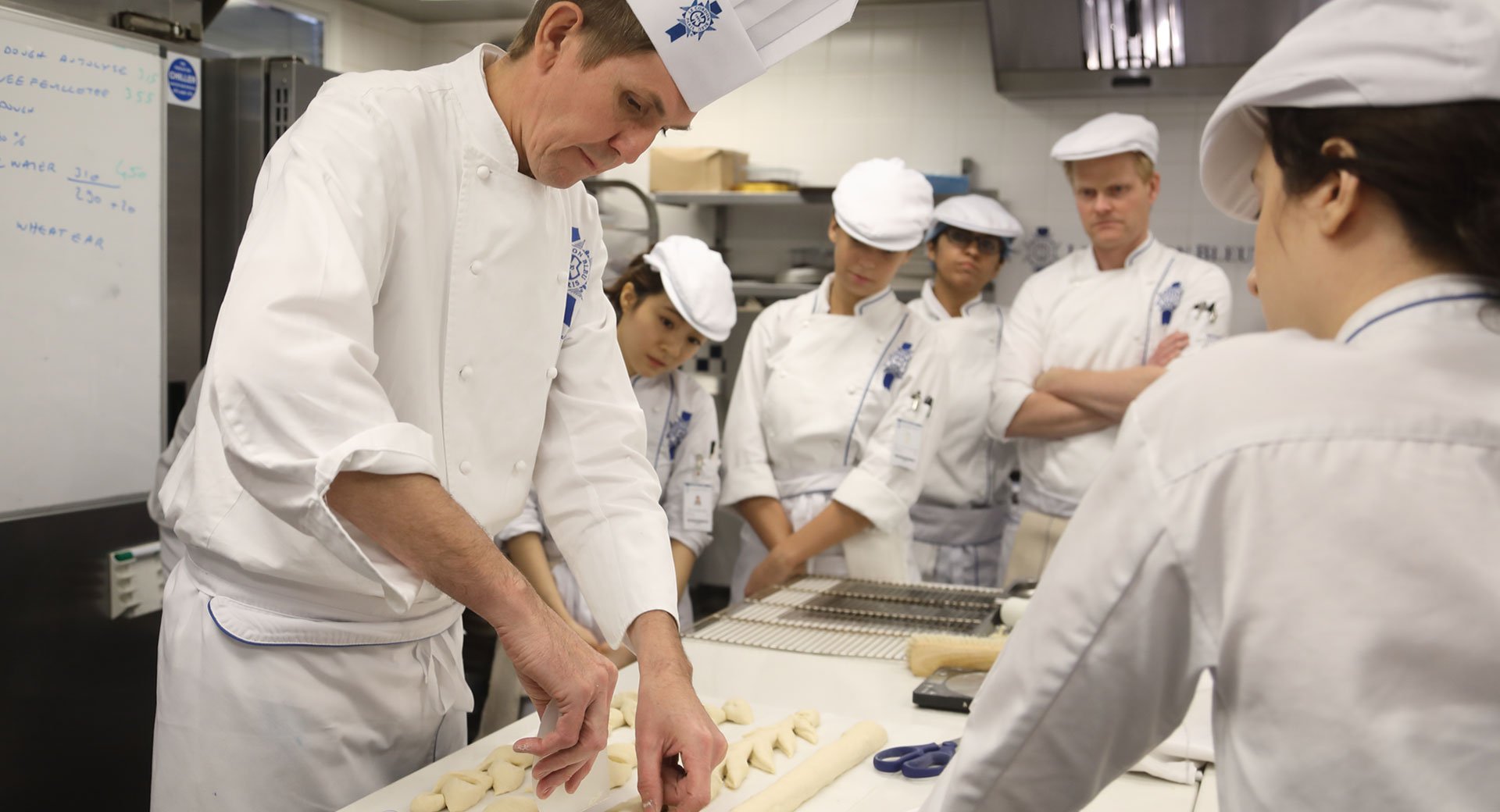-
Locations
Campuses in Europe & Middle EastCampuses in The AmericasCampuses in AsiaLe Cordon Bleu International
- Online Learning
Contact your local representative - Our Story
- Programmes
- Brochures
- News & Events
- Contact
- Find Course

Ever wanted to know what makes Artisan bread so special? Acclaimed Chef Dominique Moudart who currently teaches the Diplôme de Boulangerie programme at Le Cordon Bleu London shares expert advice on what makes good quality bread and how the craftsmanship of traditional baking is relevant today! Read this insightful interview with Chef Moudart and find out more about how you too can acquire the skills and knowledge needed to become successful in Boulangerie.
What is Artisan bread?
Artisan bread is bread made using traditional methods. What sets it apart from other types of bread is that a natural starter or sourdough is added which allows the bread to be full of flavour, another important aspect is the fermentation process. Artisan bread also has a strong robust taste and smell, a dark cream colour appearance on the inside and good crust.
How do you recognise good quality bread?
To determine whether bread is of good quality, there are several factors and characteristics you can identify. For example the crust must be crisp and of a darker tone than the inside, a strong flavour and taste due to the flour, as well as a pleasant smell. What’s also important is that the conservation is longer.
Why is the hospitality industry in need of more bakers?
There has been a lot of development in the industry which has caused an increased need for quality artisan bread. Bakers are required to provide bread that completes dishes tastefully.
In your opinion, what are the biggest challenges the bread industry is facing?
The bread industry is a fascinating sector, however in order for it to grow and produce quality goods time and time again bakers need to understand that quality bread takes time to produce. There is a lack of skilled professionals who are able to understand this and reflect it in their work, that’s why it’s important for us to pass on our knowledge.
Teaching the Diplôme de Boulangerie is both challenging and gratifying.
Can you tell us about the Diplôme de Boulangerie you teach at Le Cordon Bleu London? What it is so unique about it?
Le Cordon Bleu London recently launched the Diploma in Boulangerie programme with our first set of students graduating in December 2017. What makes the Diplôme de Boulangerie course particularly unique is that the course is carefully designed for students to learn key aspects of bread making such as nutritional contents, allergens, food intolerances and the use of natural levain. The course is open for those looking to specialise in Boulangerie.
Aspiring bakers who study at our school gain real experience in Boulangerie with our state of the art kitchens and professional equipment. Additionally, the Diplôme de Boulangerie can be taken in conjunction with the Diplôme de Pâtisserie programme enabling students to extend their knowledge and skills on techniques used within the trade.
The programme has been designed so students understand all aspects of the Boulangerie trade. From basic breads to more innovative doughs or viennoiseries, students get a chance to develop their creativity as well as learn how a bakery business needs to be run. This course has been created for those wanted to enter or specialised in a professional baking career.
The first class of Boulangerie students recently graduated, can you share some memories?
Teaching this programme has been both challenging and gratifying. I have had the pleasure in seeing how much the students have developed their bread making skills with this programme. It’s truly rewarding to share my knowledge of the industry onto students and help their careers.
Can you share the top 5 qualities of a good baker?
I think good bakers need to possess the following qualities:
Can you tell us a little bit about yourself?
I was born and raised in Lille, France and joined Le Cordon Bleu London as a baking teacher and Master Baker in 2013. My love for bakery enabled me to explore seven different regions in France and their local assortments of bread, production and artisan bread making between the years 1984 and 1991. [read more]
Copyright © 2026 Le Cordon Bleu International B.V. All Rights Reserved.